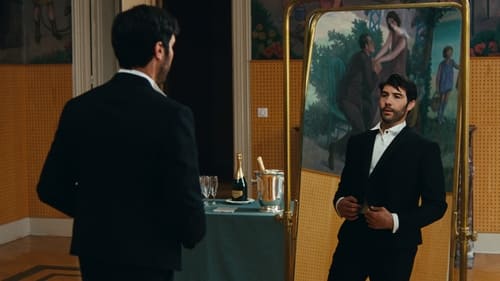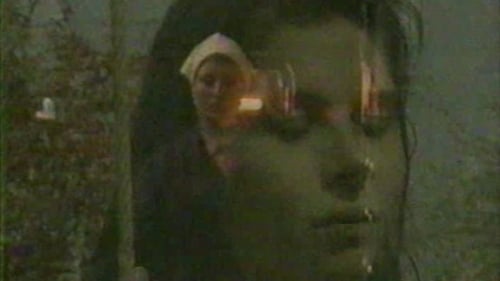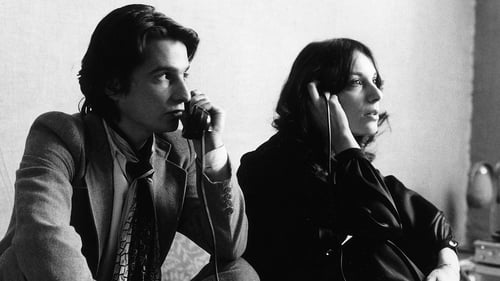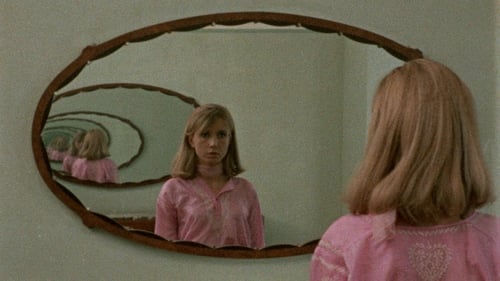
Un spectateur
Jilted on his wedding day, Laurent, a stage actor playing the role of the famous seducer Don Juan, cannot help but see his ex-fiancée in every women he meets. In an attempt to mend his broken heart and ego, he tries to seduce them all but none are receptive to his elaborate (and musical) advances. Meanwhile, at the theater, the leading lady quits and the production brings in Laurent’s ex-fiancée as the replacement.

Self
Born in Berlin in 1896, Lotte Eisner became famous for her passionate involvement in the world of both German and French cinema. In 1936, together with Henri Langlois, she founded the Cinémathèque Française with the goal of saving from destruction films, costumes, sets, posters, and other treasures of the 7th Art. A Jew exiled in Paris, she became a pillar of the capital's cultural scene, where she promoted German cinema.

Director
Perhaps it speaks to the sheer power and beauty of L’Atalante that 40 years after its initial butchered release, critics and fans still seek to piece together Vigo’s vision – and debate the choices involved in that process. Bernard Eisenschitz, who was involved with Luce Vigo (daughter of Jean Vigo) in the 1990 reconstruction of this masterwork, takes us into the raw materials by which this complex film was re-envisioned and continues to be analyzed and changed today. An important vision of film as a tradition of viewership, curation and exploration.

Narration
Perhaps it speaks to the sheer power and beauty of L’Atalante that 40 years after its initial butchered release, critics and fans still seek to piece together Vigo’s vision – and debate the choices involved in that process. Bernard Eisenschitz, who was involved with Luce Vigo (daughter of Jean Vigo) in the 1990 reconstruction of this masterwork, takes us into the raw materials by which this complex film was re-envisioned and continues to be analyzed and changed today. An important vision of film as a tradition of viewership, curation and exploration.

Thanks
A video essay where the author presumes motivations and insights in a fictionalized biography regarding Debra Paget, a contract player for 20th-Century Fox whom they groomed and coached for stardom.

Jacques Murat
Thirty years old, a nothing job, a timid love affair: Rémi is a little at sea in his life. Until the day when he must share it with his double, another him, invasive and not so nice. Which one will be the true Rémi?

Self
Five, even six, variations on a theme, commentary and interpretation of the same photograph. An exercise to tell and summarize the history of the Cinémathèque française.

himself
Jean-Louis Comolli and Jean Narboni, former editors at Cahiers du Cinema, interview their former colleagues and fellow travellers during the "Red Years" of the journal between 1968 and1973.

Totsky
Nastassia Philippovna finds herself juggling the affections of four men over the course of a single evening. One is her benefactor, the bourgeois Totsky. Another is the opportunistic Ganya, whom Totsky has promised 75,000 rubles if he will marry Nastassia. Rogozhin offers Nastassia 100,000 rubles for her hand. And the “idiot,” Prince Myshkin, loves Nastassia madly and vows to “save” her.

L'opticien
Whilst seeking out locations in the South of France for his next film, director Luc Moullet comes across a male corpse. He immediately decides to use this to his advantage. By swapping his passport with that of the dead man, Moullet hopes that the world will believe he is dead, thereby ensuring a renewed interest in his work. Unfortunately, the scheme backfires, since the dead man was someone rather important...

Self
An interview with film Critic Bernard Eisenschitz discussing the progression of Ernst Lubitsch's career, from the director's beginning in German silents through CLUNY BROWN, the last film he saw to completion.

Self
Written and directed by Hitchcock historian Noël Simsolo, this 2004 French television documentary explores the earliest years of Alfred Hitchcock's film career, beginning with his success in the production of The Lodger (1926) and following the filmmaker through his transition to sound films and his early thrillers.

Director
A short documentary in the Chaplin Today series about Chaplin's "Monsieur Verdoux." Includes an interview with Claude Chabrol, whose 1963 film "Landru" concerns the same serial killer that inspired Chaplin's film.

Writer

Director

Narrator (voice)

Director Jean-Luc Godard reflects in this movie about his place in film history, the interaction of film industry and film as art, as well as the act of creating art.

Harry Blount
A famous French filmmaker is hired by a major Hollywood producer to make a documentary on the state of post-Cold War Russia. The filmmaker, though, subverts the project by stubbornly remaining in France and casting himself as the title character of Dostoyevsky's "The Idiot," offering up a series of typically Godardian musings on art, politics, the nature of images and the future of cinema.

Man in Berlin cafe
Two interconnected stories in the 1930s, one set in Berlin, the other in Palestine: Mania Vilbouchevich Shohat (1880-1961), called Tania, a Russian Jew and revolutionary, goes from Minsk to Palestine to live on a collective. She promotes feminism and laments a shift in the men from self-defense to aggression. Her friend, Else Lasker-Schuler (1869 - 1945), expressionist poet and German Jew, is in Berlin, writing, caring for her son, watching Hitler's movement take power. She goes to Jerusalem and imagines a park for Arab and Jew. Her poems, voiced from within, capture her experience. The film meditates on the violence at the root of Israel's birth: of the Nazis and of the Zionists.

In the Library - The Angel
Two angels, Damiel and Cassiel, glide through the streets of Berlin, observing the bustling population, providing invisible rays of hope to the distressed but never interacting with them. When Damiel falls in love with lonely trapeze artist Marion, the angel longs to experience life in the physical world, and finds -- with some words of wisdom from actor Peter Falk -- that it might be possible for him to take human form.

Screenplay
Two angels, Damiel and Cassiel, glide through the streets of Berlin, observing the bustling population, providing invisible rays of hope to the distressed but never interacting with them. When Damiel falls in love with lonely trapeze artist Marion, the angel longs to experience life in the physical world, and finds -- with some words of wisdom from actor Peter Falk -- that it might be possible for him to take human form.

Script Consultant
Noel Burch’s fascinating and well-made (if at times historically contestable) six-part BBC television series, about early silent cinema in Denmark, England, the Soviet Union, France, Germany, and the U.S., mixes beautiful clips of rare films with various social theories about their significance.

Gustave
The story revolves around two objects, a rare set of 18th-century Limoges china, and a 19th century aristocratic portrait. As these items are passed, sold, or stolen from one character to another, a giddy round dance of excess begins to take shape, one which suggests that if history doesn't repeat itself, it certainly rhymes. Together with co-writer Gérard Brach, whose other co-writing credits include Repulsion and Tess, Otar Iosseliani uses a feather-light touch to expose the futility of class and social order, making a bagatelle of the concerns of rich and poor alike.

Thanks
Shots of a sequence of a shooting: young girl who must shed tears.

Director
A film by Bernard Eisenschitz.

Café de Flore's Customer (uncredited)
Aimless young Alexandre juggles his relationships with his girlfriend, Marie, and a casual lover named Veronika. Marie becomes increasingly jealous of Alexandre's fling with Veronika and as the trio continues their unsustainable affair, the emotional stakes get higher, leading to conflict and unhappiness.

Un pornographe
While two theater groups rehearse plays by Aeschylus, two solitary individuals wander the Parisian streets hustling the populace for cash.

Director
Wednesday July 31, 1968, almost six months after the start of the "Langlois affair" which saw the government attempt to oust the founder of the Cinémathèque française, triggering massive support from the biggest names in world cinema, Henri Langlois finally resumed possession of the hall of the Palais de Chaillot and celebrates his return with a tribute to Charlie Chaplin.






















